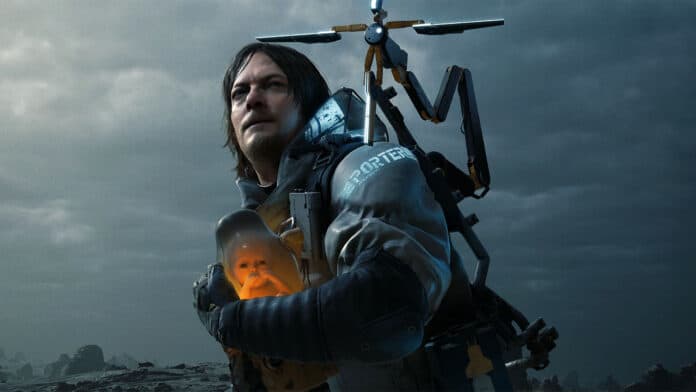Death Stranding, created by renowned game designer Hideo Kojima, is a visually stunning and thought-provoking video game that explores complex themes such as connection, isolation, and the human psyche in a post-apocalyptic world.
At the heart of this unique gaming experience is Sam Porter Bridges, portrayed by Norman Reedus, whose character development offers a fascinating study from a psychological perspective.
This article will delve into Sam’s character growth throughout Death Stranding and examine the psychological aspects that drive his transformation.
Sam’s initial psychological state
At the beginning of Death Stranding, Sam Porter Bridges is introduced as a stoic, emotionally distant protagonist who prefers solitude and isolation.
He is a “Porter,” tasked with delivering essential supplies to scattered survivors in a world devastated by the enigmatic Death Stranding phenomenon.
Sam’s isolationist tendencies stem from a traumatic event in his past, the loss of his family and the death of his wife, Lucy, during childbirth. This background sets the stage for a deep exploration of Sam’s psychological journey.
Psychological themes in Death Stranding
Survivor’s Guilt and Loss: One of the most prominent psychological themes in Death Stranding is survivor’s guilt. Sam blames himself for not being present when his wife dies, leading to unresolved grief and guilt that manifest as emotional detachment.
His character growth is intrinsically linked to his ability to confront and cope with this trauma.
Connection and Isolation: The game’s central premise is connecting isolated communities and individuals in a fractured world.
Sam’s journey is a symbolic exploration of the human need for connection and the consequences of isolation on mental health. His gradual willingness to connect with others mirrors his psychological growth.
Existential Crisis: As Sam traverses the desolate landscape, he faces existential questions about life, death, and the meaning of his journey.
These existential dilemmas trigger introspection and contribute to his character development.
PTSD and Anxiety: Sam encounters terrifying supernatural entities known as BTs (Beached Things), which induce extreme anxiety and panic.
His reactions to these encounters reflect elements of post-traumatic stress disorder (PTSD) and anxiety disorders, adding depth to his character’s psychological portrayal.
Sam’s growth
Throughout Death Stranding, Sam’s character undergoes significant growth driven by his experiences, interactions with other characters, and confrontations with his own psyche.
Sam’s journey sees him gradually opening up emotionally. He forms connections with characters like Fragile, Deadman, and BB (Bridge Baby), which allows him to express vulnerability and acknowledge his pain.
He confronts his unresolved grief and guilt, slowly coming to terms with his past. This emotional healing is a pivotal aspect of his character growth.
As Sam connects isolated settlements and brings people together, he discovers the therapeutic power of human connection. His empathy for others deepens, leading to a more profound understanding of the importance of relationships.
Also, he faces his fear of BT encounters head-on, showcasing his growing resilience and ability to cope with anxiety-inducing situations.
In conclusion
Sam Porter Bridges’ character growth in Death Stranding offers a rich and complex exploration of psychological themes, including survivor’s guilt, connection and isolation, existentialism, and mental health.
As players accompany Sam on his journey through this enigmatic world, they witness his transformation from a detached courier to a compassionate, emotionally open protagonist.
This psychological evolution is a testament to Hideo Kojima’s storytelling prowess and the depth of character development in video games, making Death Stranding a thought-provoking and emotionally resonant gaming experience.

